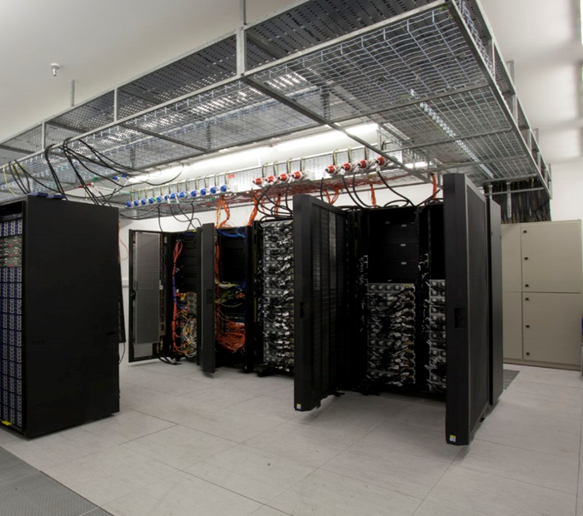
LinkSCEEM-2: A Computational Resource for the Eastern Mediterranean
Posted on: 13 Dec, 2023
The LinkSCEEM-2 project aims at the establishment of a high performance computing (HPC) eco-system in the Eastern Mediterranean region by interlinking and coordinating regional compute, storage and visualization resources to form an integrated e-infrastructure. The main project objective is to enable scientific research in the region by engaging and supporting research communities with an initial emphasis in the fields of climate research, digital cultural heritage and synchrotron applications.
Over the past 2 years, LinkSCEEM partners have developed and implemented a joint call for proposal that enables regional users to apply for resources on two large regional HPC systems, Cy-Tera at CaSToRC at The Cyprus Institute and a Sun cluster at Bibliotheca Alexandrina in Alexandria, Egypt. The application procedures implemented in LinkSCEEM follow international practice, which includes a peer review. This will prepare regional users to also apply to larger international Tier-0 centers once research activity has outgrown regional resources. The use of the resources offered for research projects by LinkSCEEM is entirely free of charge. Two calls for proposal have been successfully allocated, while a 3rd call is currently being evaluated. Access has already been given to a total of 25 projects from Egypt, Jordan, Greece, Israel and Cyprus.
While providing computational resources to regional users, LinkSCEEM also actively engages with regional user communities to provide training opportunities and to support regional education institution to build courses in computational science. The project has already organized 20 regional workshops and user meetings since the project start in September 2010. Beyond training workshops, LinkSCEEM also provides educational access to some resources. These can be used by academics for courses or by individuals to improve their skills in HPC.

LinkSCEEM-2 is engaging in two categories of research activities: cross-disciplinary, and thematic. The general goal of cross-disciplinary research is the development of software to support the optimization of parallel applications on large-scale systems. The cross-disciplinary research activities will focus on performance analysis and best implementation, mathematical analysis and algorithms, data management and scientific workflow software optimization and visualization research in the deployment of visualization software for enabling collaborative virtual spaces. Thematic research activities include research in climate modeling with an emphasis on scientific code porting and optimization for regional HPC infrastructure , the use of scientific computing and visualization as a research framework in Cultural Heritage and synchrotron data analysis and modeling aimed a porting existing and new algorithms to GPUs.
The LinkSCEEM-2 consortium combines regional Institutions (The Cyprus Institute as coordinator, the National Authority for Remote Sensing and Space Science in Egypt, Bibliotheca Alexandrina in Egypt, SESAME in Jordan, CYNET in Cyprus, JUNET in Jordan and IUCC in Israel) with internationally leading research organizations in Europe and the US (Juelich Supercomputing Centre in Germany, National Centre for Supercomputing applications in the USA, Max Planck Gesellschaft in Germany and the European Synchrotron Radiation Facility in France).
For more information, please visit the project webpage under www.linksceem.eu. LinkSCEEM-2 is funded by the European Commission’s FP7 framework program under grant agreement RI-261600

Comments (0)
Post Your Comment